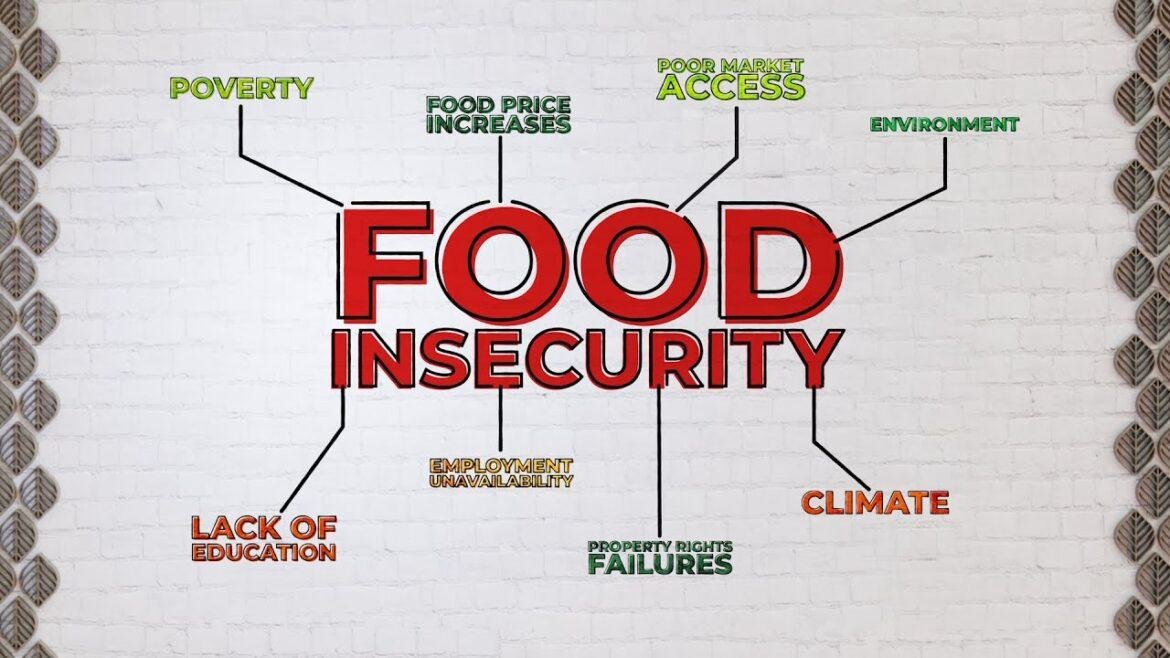News
How Food Insecurity Warnings On Nigeria, Others Came To Pass

Food insecurity warnings issued by international organisations on Nigerian and its West and Central Africa neigbours may have come to pass.
Nearly 50 million people in the region food insecure. and the United Nations has said that immediate support is needed to avert a potential food and nutrition disaster in the country.
Nigeria suffers triple-digit increases in food prices, the aftermath of devastating floods, and 15 years of insurgency in the northeast.
At the beginning of last year, the United Children’s International Fund (UNICEF) had warned that nearly 25 million Nigerians are at risk of facing hunger between June and August 2023 (lean season) if urgent action were not taken.
“This is a projected increase from the estimated 17 million people currently at risk of food insecurity. Continued conflict, climate change, inflation and rising food prices are key drivers of this alarming trend. Food access has been affected by persistent violence in the north-east states of Borno, Adamawa and Yobe”, it said
The Global Hunger Index for 2024 which ranks Nigeria 110th out of the 127 countries with sufficient data to calculate 2024 GHI scores adds that “With a score of 28.8 in the 2024 Global Hunger Index, Nigeria has a level of hunger that is serious”.
According to it, Nigeria’s GHI Score is further explained on the values of four component indicators, whereby 18.0% of the population is undernourished; 31.5% of children under five are stunted; 6.5% of children under five are wasted and 10.7% of children die before their fifth birthday
READ ALSO: End Hunger Protests Rock Kano, But Warri Residents Indifferent
READ ALSO: Ibadan Funfair Stampede: Police Releases Names Of Those Detained
According to the FAO, food insecurity in the region is being exacerbated by weather extremes, conflict and high food prices
It said in Nigeria, coarse grain prices remained well above their year-earlier values and hit record levels in
several markets in September, mainly driven by the continued devaluation of the naira, a decrease in
domestic cereal production, and high transportation costs.
“It was projected that food insecurity (IPC Phase 3 or worse) would affect nearly 50 million people during the lean season of June to August 2024, according to Cadre Harmonisé analysis.

-Cshowcasenews
According to the World Bank’s Food Price Monitoring and Analysis on the regional level, domestic grain prices were higher than a year earlier in several countries.
“In Nigeria, coarse grain prices remained well above their year-earlier values and hit record levels in
several markets in September, mainly driven by the continued devaluation of the naira, a decrease in
domestic cereal production, and high transportation costs”.
It says, “in Mali, sorghum and millet prices reached record levels in several areas and remained well above their year-earlier values in most markets, reflecting market disruptions due to conflict and floods, as well as concerns over the performance of the 2024 cropping season and strong demand.
“In Burkina Faso, sorghum and millet wholesale prices were 43 and 57 percent higher, respectively, than during the same period last year.
Low supply due to low carryover stocks, reduced imports from neighboring countries, delayed marketing of the 2024 cereal crops because of a late start to the harvest in several areas, high transport costs, and conflict‑related market disruptions were the main drivers of high prices.
READ ALSO: Oriyomi Hamzat Hospitalised After Ibadan Stampede That Claimed 35 Children Lives
In Niger, millet and sorghum prices remained above their year-earlier levels, driven by low market supply due to the lingering effects of Economic Community of West African States sanctions, including the continued closure of the border with Benin that have affected cereal imports and flood- and conflict-related market disruptions”.
Analysts cite the recent Christmas charity stampedes in parts of the country that claimed at least 67 people as proofs of both hunger and food insecurity in the country.















